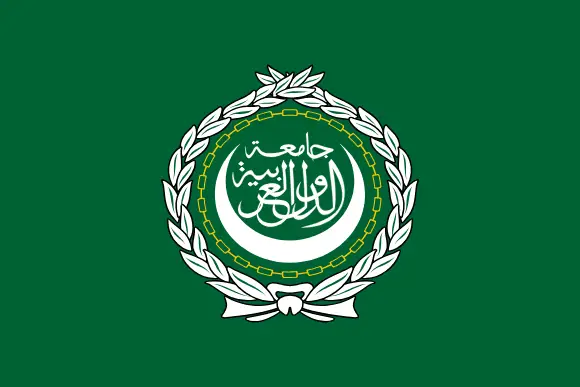- Acronym: AL
- Type: Regional Intergovernmental Organization
- Membership: 22 member states, 5 observer states
- Establishment: Established on 22 March 1945
- Official Language(s): Arabic
- Headquarters: Cairo, Egypt
The Arab League, formally known as the League of Arab States, is a regional organization of Arab countries in and around North Africa, the Horn of Africa, and Arabia. It was formed to foster closer economic, cultural, and political ties among its members and to mediate disputes involving its members. It has also served as a platform for the drafting and conclusion of many landmark documents promoting economic integration and family cohesion.
Arab League History
The Arab League was formed in Cairo on 22 March 1945 initially with six members: Egypt, Iraq, Transjordan (now Jordan), Lebanon, Saudi Arabia, and Syria. Yemen joined as a member on 5 May 1945. The principal motivating factor for the creation of the league was the desire to coordinate resistance to Western imperialism and to manage conflicts between members. It has played a significant role in shaping the political, economic, and cultural landscape of the Arab world.
Arab League Structure
The Arab League’s structure includes the Council, the Committees, and the General Secretariat. The Council is the principal decision-making body and consists of representatives from each member state. The Committees address specific issues such as economic affairs, communications, cultural affairs, legal affairs, and political affairs. The General Secretariat, headed by the Secretary-General, is responsible for coordinating and implementing activities and policies decided by the Council.
Arab League Membership
Membership in the Arab League is open to any Arab state. The league currently has 22 members. Each member state has one vote in the Council. The Arab League has also granted observer status to five countries and four organizations.
Arab League Objectives
Political Cooperation
The Arab League aims to strengthen ties among the member states, coordinate their policies, and promote their common interests in the political arena.
Economic Integration
The league works to create a common market among the Arab countries and to ensure economic cooperation and integration, improving the living standards of all Arab peoples.
Cultural Exchange
The Arab League promotes cultural exchange and preservation of Arab cultural heritage. It fosters cultural cooperation among member states and works to unify educational and cultural policies.
Arab League Funding
The funding of the Arab League comes primarily from contributions made by the member states. The contribution of each state is determined according to the size of its economy.
Arab League Projects
Joint Defence and Economic Cooperation Treaty
This treaty focuses on the coordination of military defense and economic development between member states, aiming to provide collective security and economic advancement.
Educational, Cultural and Scientific Organization (ALECSO)
ALECSO works to coordinate activities in the fields of education, culture, and science among the league’s member states.
Arab League Members
Member States
- Algeria
- Bahrain
- Comoros
- Djibouti
- Egypt
- Iraq
- Jordan
- Kuwait
- Lebanon
- Libya
- Mauritania
- Morocco
- Oman
- Palestine
- Qatar
- Saudi Arabia
- Somalia
- Sudan
- Syria (membership currently suspended)
- Tunisia
- United Arab Emirates
- Yemen
Observer States
The Arab League continues to be a pivotal organization in shaping the political, economic, and cultural dynamics of the Arab world. Its initiatives and projects, aiming at enhancing cooperation and solidarity among member states, play a critical role in promoting stability, prosperity, and cultural heritage in the region. With a vision of unity and collective progress, the Arab League stands as a testament to the power of regional cooperation in addressing common challenges and harnessing opportunities for shared growth and development.

